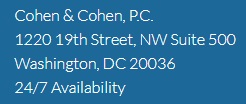Auto Accident Lawyer
Following a car crash, you’re sure to be in shock. Even a more minor fender bender can trigger slow reaction times. While it’s impossible to be fully prepared for a car crash, knowing what you should do ahead of time can help you if an accident occurs. These tips will help you immediately after a car crash and what you should do days later.
1. Start By Making Sure No One’s Hurt
Your first step should be to check the condition of you, your passengers, the other driver, and other parties. Make sure no one’s hurt, and immediately call 911 if you see someone injured. It’s important to know that car crashes can also cause internal injuries. Therefore, everyone needs to get checked out when medical assistance arrives, starting with those who are believed to need the most care.
2. Get Yourself and Your Vehicle Out of Harm’s Way
If the accident is minor and you’re not harmed, you should drive your vehicle to the side of the road so that it doesn’t impact traffic. Turn on your hazard lights to alert other drivers. However, if you or your vehicle are severely injured, you shouldn’t attempt to move. Additionally, be careful when exiting the vehicle, mainly if the incident occurred on a busy street.
3. Contact the Police
If you didn’t already contact 911 during step one, then now’s the time. The primary purpose of calling the police is to report the accident. Sometimes cops may not come to the scene of a minor car crash. If they arrive, however, get the officer’s name, badge number, and contact information. You’ll also want a copy of the police report. Sometimes you can receive this report on the spot; other times, you may need to request it from the police officer or the insurance adjuster later.
4. Gather Other Crucial Information
While waiting for the police to arrive, you can start gathering any necessary information. Alongside gathering the other driver’s contact information and witnesses, you should also take pictures of the scene. These pictures should include any damage to your vehicle and the other driver’s vehicle.
If you have any physical injuries, take photos of your injuries as well if you’re in a position to. If your injuries warrant a trip to the hospital, you’ll also want a copy of your doctor’s medical report. You should also write a personal testimony of events and may even ask for testimony from other witnesses. These testimonies should include the date, location, sustained damages, etc.
5. Contact a Lawyer When Necessary
For a minor car accident, usually, a settlement from your or the other person’s insurance company might be enough. Other times, however, the settlement may not cover all your immediate and future expenses. When this happens, it’s a good idea to have an auto accident lawyer in Longwood, FL, on your side. They can help negotiate with the insurance company and apply legal pressure when necessary. Our friends at David & Philpot, P.L. have a team of attorneys that can help!

